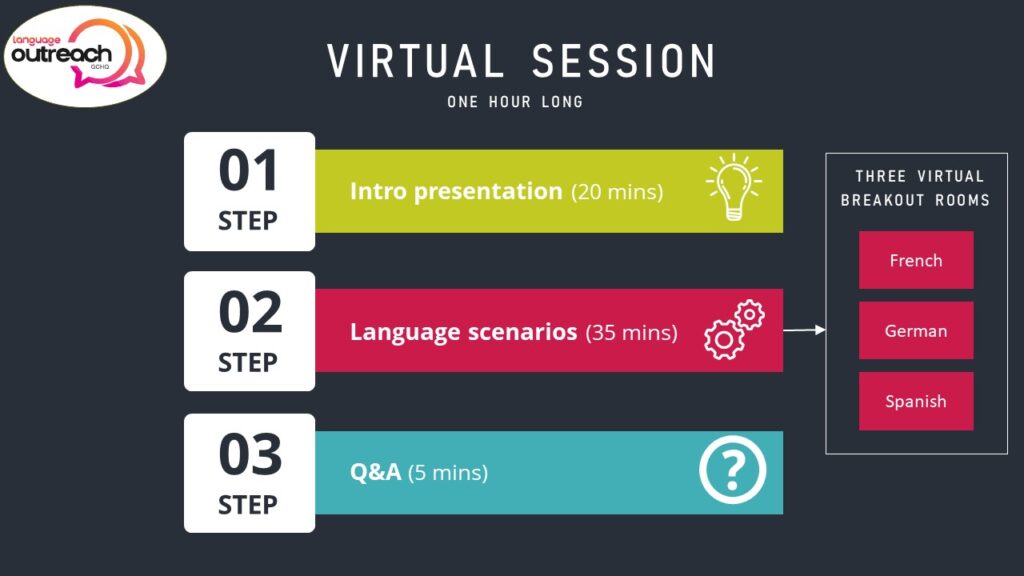Following the publication of the winning and runner up entries, we are excited to present the highly commended entries for the Year 10-11 category of this year’s French Flash Fiction competition!
A huge well done to all of our highly commended entrants!
*****
Le Bateau en Papier
Il plie le papier, pressant chaque pli du bout des doigts. Un petit bateau. Léger comme l’air. Au bord de la rivière, il le lâche. Le regardant danser sur l’eau. Glisser. Tourner. Libre.
Mais les nuages s’amoncelent et la première goutte de pluie tombe. Puis une autre. Le bateau vacille. Lentement, il s’adoucit, puis se dissout dans la rivière et disparaît.
Le garçon reste immobile. Il ne pleure pas. Il n’est pas parti, il est devenu autre chose. Il ne flotte plus, il coule.
La rivière continue d’avancer, et lui aussi.
– Maryam Zulqarnain, Year 10
Le premier rendez-vous
J’entends les cris. Les montagnes russes semblent trembler…
Mon ventre danse. Ma magnifique copine me parle, mais je n’entends rien. Je lui avais dit que je n’avais peur de rien mais, maintenant que nous sommes ici, je pense que notre premier rendez-vous aurait dû être au cinéma.
Enfin, notre tour arrive. J’entre dans le train. Mon cœur s’emballe. Le forain m’attache tandis que ma prétendante rigole. Le wagon cahote (est-ce normal ?) et la lente montée commence. Après une longue pause au sommet, le train s’élance à grande vitesse.
Mon estomac se serre et ma bouche s’ouvre…
– Will Eyre, Year 11
Tourner…
Je me suis retourné et je l’ai vue pour la première fois: Elle m’a fait tourner la tête et mon cœur n’a fait qu’un bond. Je me suis tourné les pouces un moment sauf qu’ elle m’a tourné le dos. Alors, j’ai tourné autour du pot et j’ai même tourné en rond. Rien à faire. Elle me faisait vraiment tourner en bourrique. Alors, j’ai tourné ma langue sept fois dans ma bouche mais comme ça tournait au vinaigre- avant que la situation ne tourne à la catastrophe- j’ai tourné la page. En bref, ça a tourné au fiasco!
– Todd Graham, Year 10
La couronne flétrie
J’étais autrefois une couronne.
Non pas d’or, mais de laurier, placé sur la tête des vainqueurs.
Les hommes ont saigné pour moi, couru pour moi, tué pour moi.
J’étais la preuve de la grandeur, le poids des dieux reposant sur des fronts mortels.
Mais le temps est impitoyable.
Maintenant, je suis fragile, je m’écroule dans la poussière d’arènes oubliées.
Mes feuilles, autrefois embrassées par la gloire, ne sont plus que des murmures secs dans le vent.
Pourtant, quand les pieds battent la terre, quand les cœurs s’emballent d’ambition, je m’agite.
Car la victoire ne meurt jamais. Et moi non plus
– Zara Amjad, Year 10
Les étoiles ne meurent jamais
Grand-mère disait que les étoiles étaient des âmes qui veillent sur nous.
« Regarde, mon enfant, elles brillent toujours, même quand on ne les voit pas.»
Ce soir, le ciel est vide. L’obscurité pèse sur moi. Grand-mère n’est plus là.
Je ferme les yeux.
Sa voix danse dans le vent. Son rire vibre dans les feuilles. Son parfum flotte dans l’air.
J’ouvre les yeux.
Une étoile scintille, solitaire, éclatante.
Je souris.
Les étoiles ne meurent jamais.
– Faith Obum-Uchendu, Year 11
Il était une fois
où les filles vêtues de rouge fuyaient les loups affamés de torture et d’exploitation
où Hansel et Gretel cherchaient désespérément des miettes de pain mais ne trouvèrent que la faim.
où la malédiction de la Belle au bois dormant devait être tranchée par un couteau.
où la Belle au bois dormant s’est endormie délibérément
où la beauté est tombée amoureuse d’une bête abusive
où HumptyDumpty est tombé comme une bombe pour que personne ne puisse reconstruire ce qui était autrefois si fort
où Cendrillon attend sa marraine la fée
Voici notre fin heureuse pour aujourd’hui.
– Elizabella Macleay-Wood, Year 10
Le festin du temps
Le temps est une table infinie, ornée d’heures d’argent, de jours de porcelaine et d’années de verre. Les jeunes se gorgent sans retenue. Ils arrivent affamés, dévorant les instants sans les goûter, avalant la jeunesse comme un vin, sans jamais craindre l’assiette vide.
Les vieux, par contre, mangent plus lentement, plus conscients de la cruelle limite du temps. Ils savourent chaque bouchée.
Finalement, nos appétits cesseront, nos mains s’immobiliseront, nos assiettes deviendront vides. Mais la table reste, attendant ses prochains convives, qui dîneront comme si le repas ne finirait jamais.
Comme si le festin du temps pardonnerait leur faim égoïste.
– Florence Datta, Year 11
Le passage de temps
Depuis plus d’un siècle, la Tour Eiffel regardait le monde filer. Des amoureux gravaient leurs noms sur les bancs, puis disparaissaient avec le vent. Des enfants riaient sous son cadre de fer, puis grandissaient et ne revenaient jamais. La Tour tendait ses bras d’acier pour retenir un instant, mais le temps était un fleuve—inévitable, indifférent. Les saisons valsaient autour d’elle, les ombres s’allongeaient et rétrécissaient, mais rien ne durait. Elle aurait voulu murmurer, Ralentissez… restez un peu. Mais le temps n’écoutait jamais. Alors, la Tour restait, témoin silencieux des vies éphémères, tandis que le monde avançait.
– Izzy Anderson, Year 10
Dans un petit village, un chat venait chaque soir au coucher du solil et s’asseyait près l’une église. Les gens disaient quil gardait un trésor. Un jour un enfant a suivi le chat, Le chat est entré dans l’église et disparu. Le lendemain. on a trouvé l’enfant devant l’église, avec une petite pièce d’or dans sa main. Personne ne savait d’où elle venait , et le chat ne revient jamais. Maintenant adue, l’enfant va encore à l’église et laisse des pièces, espérant pour la revoir du chat.
– Aayushi Dhelaria, Year 11
Le vieil homme soupire sous son propre poids. Arthur s’assoit, comme hier, comme toujours, regardant le monde avancer sans elle. Le vent porte des échos de son rire, effleurant son visage d’un souffle parfumé de lavande. Ses mains tremblent, cherchant l’ombre d’une étreinte disparue. ” Bientôt, mon amour…” murmure-t-il.
Le jour s’éteint. Les réverbères vacillent. Il ferme les yeux, juste un instant. Puis, une caresse, une main sur la sienne. Douce, familière. Son cœur s’emballe. Il ouvre les yeux… mais le banc est vide. Seul le vent danse, seul le silence répond. Seul reste l’écho d’un amour éternel.
– Antoinette Aluge, Year 10














